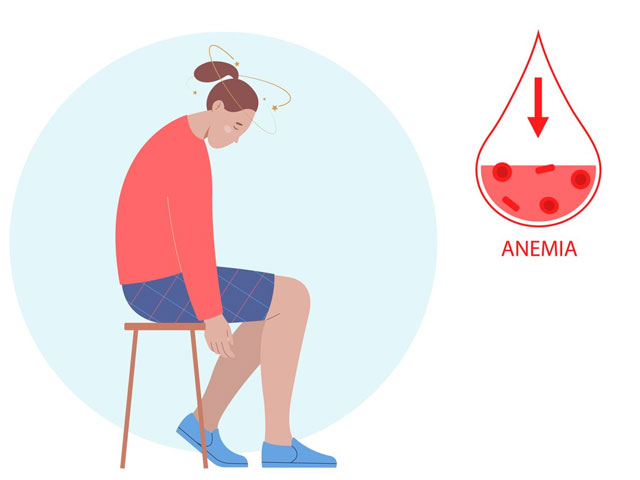
What is Iron Deficiency
What is Iron Deficiency? Symptoms of Iron Deficiency
Iron deficiency is a condition in which the iron need of the body cannot be met because of various reasons. It is a serious health problem that causes 800,000 deaths every year in the world. It is also the biggest cause of anemia and occurs in 35% of women and young children and 20% of men.
Why should iron deficiency be taken seriously?
Iron is an element, which means that it cannot be produced by the body. Under normal conditions we must take it from the outer world through the diet. It is essential for the body because it is part of the power plants inside cells. In addition, red blood cells, which take oxygen from the lungs and deliver it to other tissues, can only grow in sufficient numbers if there is enough iron in the body.
When the amount of iron in the body is low, red blood cell production decreases and, as a result, the amount of oxygen transported to cells, tissues and organs decreases. Long-term iron deficiency turns into anemia.
How does iron deficiency occur?
Iron deficiency is usually caused by 3 reasons:
- Body’s increased need for iron
- Low iron intake
- Loss of iron from the body.
The most common cause of iron deficiency is insufficient consumption of iron-containing foods. Pregnancy, menstrual periods and conditions that cause blood loss increase the body’s need for iron.
Reasons of iron deficiency
- Pregnancy
- Breastfeeding
- Giving birth at frequent intervalsGrowing up
- Inadequate and unbalanced nutrition
- Heavy menstrual bleeding
- Excessive blood loss due to stomach ulcers, hemorrhoids, accidents and etc.
- Increased loss of minerals and other trace elements due to excessive exercise
- Insufficient gastric acid secretion
- Ulcer in the stomach or duodenum
- Past surgeries (mainly on stomach or small intestine)
- Diseases such as celiac
- Consuming too much caffeinated beverages such as tea, coffee, cola with meals
- Hereditary causes
- Drugs that reduce iron absorption
Symptoms of iron deficiency
Iron deficiency is difficult to recognize at early stages because our bodies can build a depot of it. Our iron depot helps to delay the onset of anemia symptoms, but not for too long.
Early symptoms:
- Brittle hair and nails
- Dry skin
- Cracks in the corners of the mouth
- Burning in the tongue
- Sensitivity of the oral mucosa
Symptoms of serious iron deficiency
- Constant fatigue
- Concentration problems, brain fog
- Indifference
- Gasping for breath during physical activities
- Dizziness and blackouts
- Headache
- Depression
- Sleep problems
- Feeling colder than usual
- Hair loss
- Pale appearance of skin color
- Swelling of the tongue
- Tinnitus
- Tingling, numbness, cramp like feelings in the hands and feet
Diseases caused by iron deficiency anemia
- Heart conditions (rapid heartbeat, heart failure, enlarged heart)
- Pregnancy complications (low birth weight, risk of premature birth, problems in the mental development of the baby)
- Weakening of the immune system
- Both mental and physical retardation infants and children
- Restless leg syndrome
How to prevent iron deficiency?
It is often possible to prevent iron deficiency by making some changes to your eating habits. The easiest way is to combine iron-rich foods with foods that facilitate iron absorption. It will also help to avoid consuming foods and drinks that reduce iron absorption.
Foods to eat for iron deficiency
Red meat, liver and other offal products, chickpeas, lentils, kidney beans, kidney beans, peas, dried beans, spinach, potatoes, prunes, seedless grapes, boiled soybeans, pumpkin, oats, molasses, honey, etc. are primarily recommended to prevent iron deficiency.
How is iron deficiency treated?
Treatment is planned for the cause. If the problem is based on very low intake of iron by food, the patient’s diet is adjusted to get enough iron. It is recommended that the person consume iron-rich foods such as red meat, liver and fish and avoid drinks that reduce iron absorption such as tea and coffee. If the change in diet is not sufficient and anemia is present, the patient may need to be treated with iron medication.

